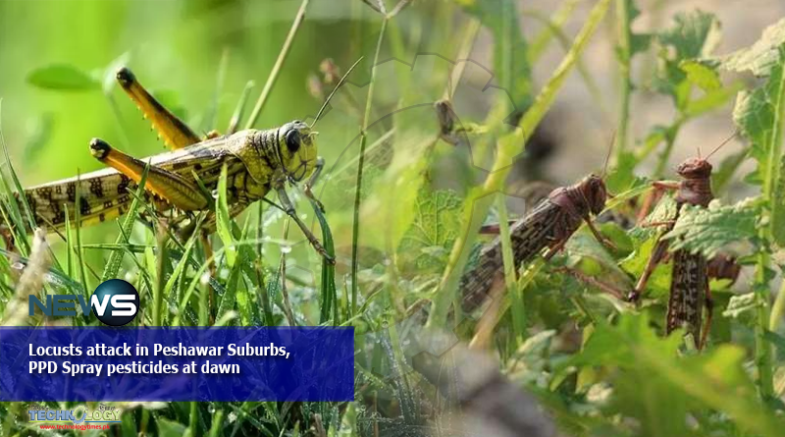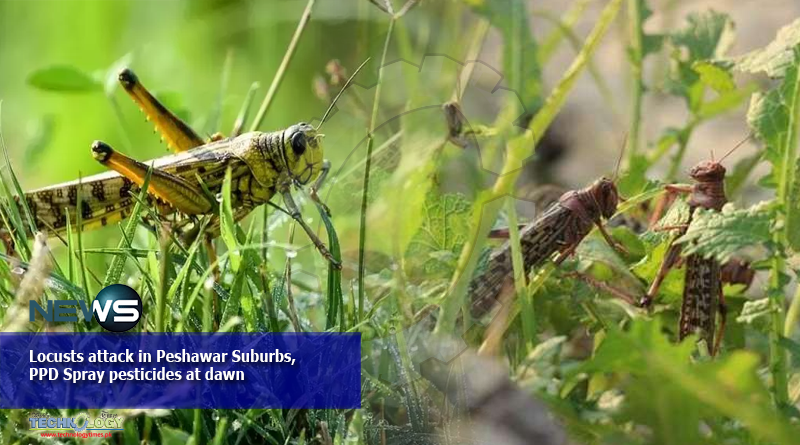A scattered swarm of locust has arrived in the suburbs of Peshawar on the southern side of the city between FR (Frontier Region) Peshawar and Kohat areas. PPD adopted a strategy to counter-attack locusts by spraying pesticides at dawn when they unable to fly.

“The swarm has been reached at Mattani area and presently resting at a barren land while agriculturists are busy in spraying the insect to contain the attack” informed Sajid Khan, Deputy Director Plant Protection Department Peshawar District.
Talking to APP during field operation at Mattani area on Saturday, Sajid said the attack is not so severed and could be contained easily.
He said the coming locust is part of a swarm that is dispersed from D.I.Khan and its adjoining areas.
Sajid also indicates the hope that if this swam is contained and killed, 90 percent of locust problem could be resolved in the province.
He said agriculture teams are also busy in spraying different areas where the pest is reported including Karak, D.I.Khan and FR Kohat areas.
Sajid said the team of Plant Projection Department is busy neutralizing the attack of locust and spending time in the field besides threats of coronavirus infection.
It is important to be mention here that locust is scientifically known as `Schistocera Gregaria’ and can fly with a great speed of around 15 km per hour.
A swarm of the locust is so huge that it can spread over an area of around four to five kilometers in the sky and can consist of a population of around 80 million to one billion pests.
In January 2020 swarms of locust started arriving in KP at Tehsil Daraban of D.I.Khan district while passing through Takht-e-Suleman mountain range of Baluchistan province.
On January 30, Relief, Rehabilitation and Settlement Department of KP had declared an emergency in nine Southern districts of the province.
To counter the attack and protect crops from damage, the Agriculture and Plant Protection Departments of KP adopted the strategy of monitoring of the swarm presence and targeting them by spraying pesticides before dawn when the locusts are dormant and cannot fly.
The strategy proved highly successful in containing the attack by causing huge mortality to the attacking pest.
